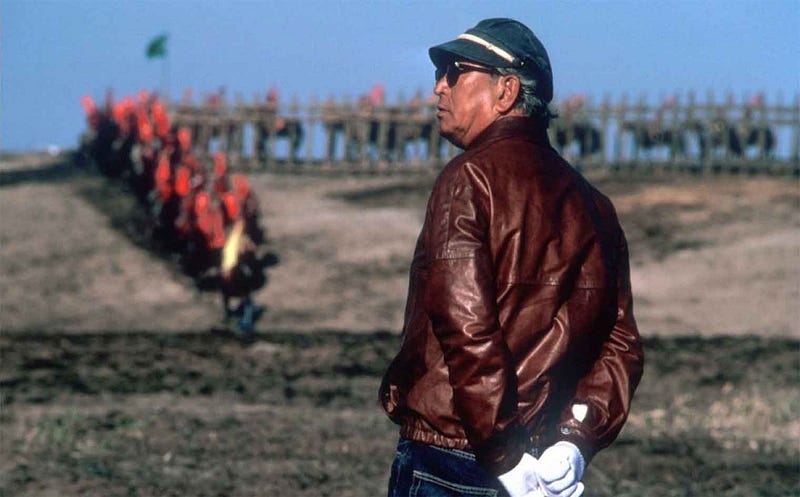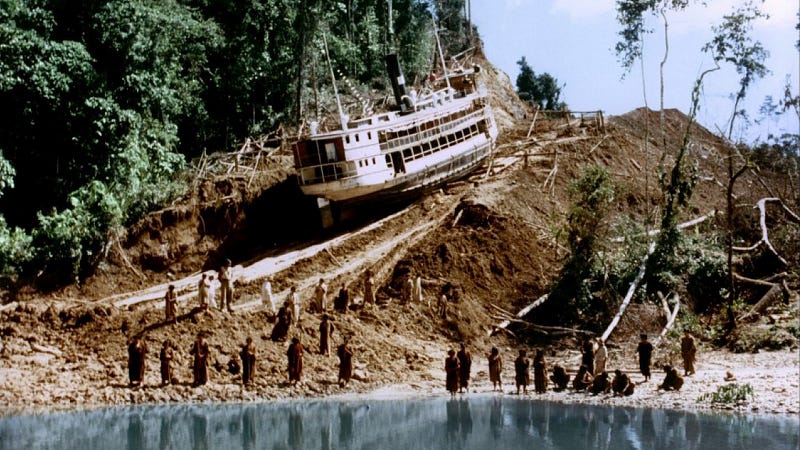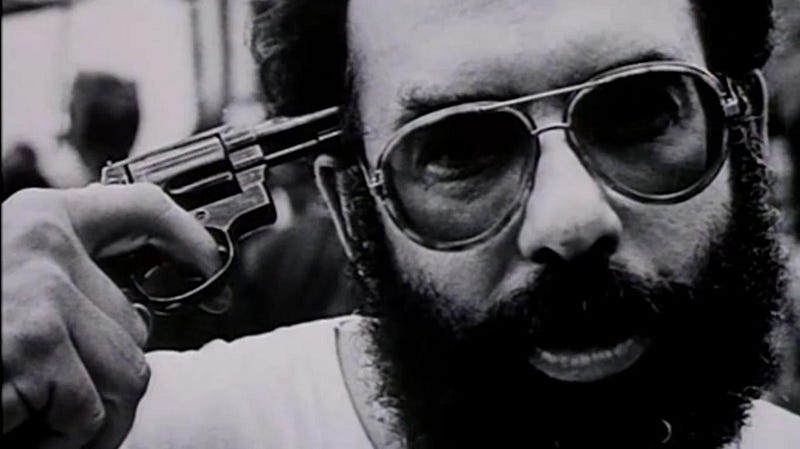
Peeking through the window of a film set is maybe the best way to learn how to make and see movies. GuideDoc brings you the Top Five “Making of” Documentaries so you can see how cinema breathes in its interstices.
In case you didn't now, GuideDoc is a global curated documentary streaming platform. Watch the world's best award-winning docs from around the world. We have new movies every day.
Making Of The Shining by Vivian Kubrick (1980)

Commissioned by her father to film behind the scenes of what would be one of his most memorable films, in 1970 Vivian Kubrick films with a very dynamic camera inside the immense film studio that gave life to the majestic Overlook Hotel. Being the director’s daughter should give you some benefits, like filming inside the bathroom of Jack Nicholson’s dressing room while he brushes his teeth and thus the Making Of The Shining was born.
We hear Vivian´s voice interacting with the actors, especially with Nicholson, who is like a fish in the water giving life to a character on the verge of madness. In the film we can see Kubrick writing the script on the fly, giving indications to the actors during crucial scenes, the little Danny Lloyd telling his impressions about filming and a sincere Shelley Duvall unveiling his jealousy for Nicholson´s fame and her being annoyed at Kubrick for putting too much pressure on her acting.
A.K by Chris Marker (1986)

The renowned French filmmaker Chris Marker infiltrates the shooting of the majestic exterior scenes of Ran, the last great film made by the Japanese Master Akira Kurosawa. Marker´s filming is a quiet presence and a distant and respectful look at what happens before his eyes: an appeased Akira Kurosawa (at age 73) directing an army of extras and his numerous film crew, who bring to life to scenes of siege and war on the mountains and plains of Mount Aso, Japan’s largest active volcano.
In A.K, Marker assumes an observational strategy and prefers to leave freely on the screen the incidents of the shooting, prioritizing Kurosawa while adjusting every minimum detail of the Mise en scene. During the film there is very little narration, but there are occasional allusions to Kurosawa’s life. A.K was released in the Un Certain Regard section of the Cannes Film Festival in 1984 and today is cataloged as a valuable film of the work of one of the most memorable filmmakers in film history.
Burden of Dreams by Les Blank (1982)

Trapped in the chaotic shooting of Fitzcarraldo, the film that Werner Herzog made in the jungle of Peru, American filmmaker Les Blank shows admirable survival skills when documenting the ordeal that meant performing the production that, among other things, involved dragging a boat over a mountain without any kind of special effects. Based on the true story of a Peruvian Baron who sought to exploit a rubber plantation in the heart of the Amazon, Herzog’s production depended in some way on conquering the jungle’s metabolism.
In Burden of Dreams it is precisely this battle against nature the thematic heart of the film. Herzog’s team had to withdraw from the territory in which they originally intended to film after being threatened by the local tribe, which claimed to defend their lands. Also, the German filmmaker faced the resignation of his protagonist Jason Robards and his supporting actor Mick Jagger, reason why he had to shoot part of the film all over again now with Claus Kinsky as Fitzcarraldo. Burden of Dreams shows how Herzog saw the need to bring indigenous prostitutes to a film set stagnated by the impossibility of achieving the mechanism to drag the boat over the mountain, among other surreal anecdotes.
American Movie by Chris Smith (1999)

American Movie is about Mark Borchardt, a moviegoer on the verge of bankruptcy and with notable alcohol problems, and his process to make a short film called “Coven”. As his loyal allies there are his best friend Mike Schank who is overcoming his drug addiction and his old uncle Bill, whom he convinces to finance his production. Borchardt´s best weapon is his indomitable will to fulfill the biggest dream of his life: to film a feature film called Northwestern.
To achieve his goal first Borchardt must finish the short film that began shooting years ago and never completed. The events of an improvised film shooting pass in front of our eyes and challenge our credibility on several occasions. The film shows us a candid yet eccentric Borchardt while having to resort to desperate decisions to complete his takes like convincing his mother to act as one of his extras or to expose one of his amateur actors to hit his head with a kitchen cabinet.
Heart of Darkness, A Filmmaker´s Apocalypse by Eleanor Coppola, Fax Bahr and George Hickenlooper (1991)

“My film is not about the Vietnam War, it’s the Vietnam War,” that´s how Francis Ford Coppola described the production of his 1979 film Apocalypse Now, which won the Palme d’Or that same year. The shooting took part mostly in the Philippine Islands and the “Behind The Scenes” was documented by his wife Eleanor. The images show how Coppola had to face innumerable obstacles to be able to make an allegory of the grandiloquent American invasion in Vietnam.
In the film Heart of Darkness, A Filmmaker´s Apocalypse we see how the helicopters of the Philippine Air Force were used to appear on the screen as US units despite the fact that that Asian nation was simultaneously waging a war against a rebel communist army. Other anecdotes include Coppola’s problematic phone calls with his producers, which finally brought back Martin Sheen to the set after he suffer a heart attack in the middle of the shooting. Also, Marlon Brando arrived on the set with little preparation and refused to act if Dennis Hopper was near of him, so they both had to fake an scene in which they would interact with each other. Coppola appears talking on camera several times making catharsis between his worries. His reflections are full of self-criticism in the almost manic manner in which he acts to achieve his most desired work at the best moment of his career.
Watch essential documentaries now on GuideDoc.